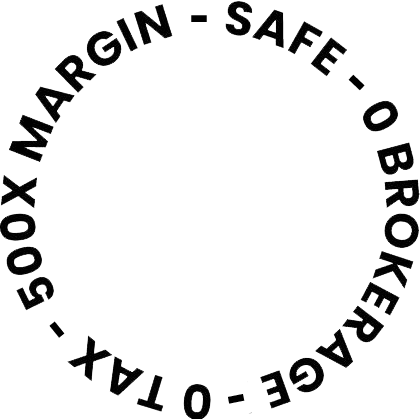How to Choose the Right Financial Market for You: A Beginner’s Guide
Introduction
With so many financial markets available today — from stocks and forex to crypto and commodities — it’s easy to feel overwhelmed. Each market has its own personality, volatility, trading hours, and profit potential.
So, how do you choose the right market to start your trading journey?
This blog will break down the most popular financial markets, their pros and cons, and the factors you should consider when picking one that aligns with your goals and risk tolerance.
Factors to Consider When Choosing a Market
Before diving into a specific market, ask yourself:
- How much time can I dedicate to trading?
- What’s my starting capital?
- Do I prefer long-term investing or short-term trading?
- How comfortable am I with high volatility and risk?
- Do I understand the fundamentals of this market?
Let’s explore the most common markets to help you make an informed choice.
1. Stock Market
Ideal for: Long-term investors and short-term traders (intraday or swing)
Pros:
- High liquidity and transparency
- Regulated environment
- Access to company data and financials
Cons:
- Limited to trading hours (unless trading international stocks)
- Subject to market-wide news events
Best for: Those who want to invest in companies, follow earnings reports, or build wealth over time.
2. Forex Market (Foreign Exchange)
Ideal for: Short-term traders and those looking for high liquidity
Pros:
- Open 24 hours (Monday to Friday)
- High leverage options
- Extremely liquid market
Cons:
- High volatility
- Complex global factors impact currency prices
Best for: Active traders who can dedicate time daily and understand macroeconomics.
3. Cryptocurrency Market
Ideal for: Tech-savvy traders with a high-risk appetite
Pros:
- 24/7 market access
- High volatility = high profit potential
- Low entry barrier
Cons:
- Poor regulation in some regions
- Prone to manipulation and scams
Best for: Traders who can manage rapid price swings and stay updated on crypto trends.
4. Commodities Market (Gold, Oil, etc.)
Ideal for: Diversifying portfolios and hedging inflation
Pros:
- Tangible asset backing
- High relative during inflation or crisis
- Can be traded via futures, options, or spot
Cons:
- May require more capital
- Affected by geopolitical and natural events
Best for: Those interested in global economics and supply-demand dynamics.
5. Global Indices and US Stocks
Ideal for: Traders wanting exposure to top-performing global companies
Pros:
- Access to global tech giants and blue-chip stocks
- High-quality financial data
- Lower volatility compared to crypto or forex
Cons:
- Time zone differences
- Currency conversion costs may apply
Best for: Those with a global outlook and interest in major indices like the S&P 500, Nasdaq, or Dow Jones.
| Market | Trading Hours | Volatility | Regulation | Best For |
|---|---|---|---|---|
| Stocks | Limited (Mon–Fri) | Moderate | High | Long-term & short-term traders |
| Forex | 24/5 | High | Medium | Day traders, macro followers |
| Crypto | 24/7 | Very High | Low–Medium | Risk-tolerant tech traders |
| Commodities | Exchange-specific | Moderate | High | Inflation hedge & diversifiers |
| Global Indices | Exchange-specific | Low–Medium | High | Global investors |
Final Thoughts
There’s no “best” market — only the one that best fits your style, schedule, and goals.
If you’re new, consider starting with one market, mastering it, and then gradually exploring others. Many successful traders build their edge by specializing.
The key is to learn, test, and evolve.
Start Trading in 3 simple steps
- 1
Quick Registration
Sign up with just an Email & Phone number
- 2
Deposit Instantly
Super fast Deposits via UPI or bank transfer
- 3
Start Trading
Start Trading in seconds in the Global Exchanges


Contact Our Team



 Google Play
Google Play  App Store
App Store  Desktop
Desktop  Web
Web 


 info@tradebazaar.com
info@tradebazaar.com  WhatsApp Chat +91 87933 46579
WhatsApp Chat +91 87933 46579